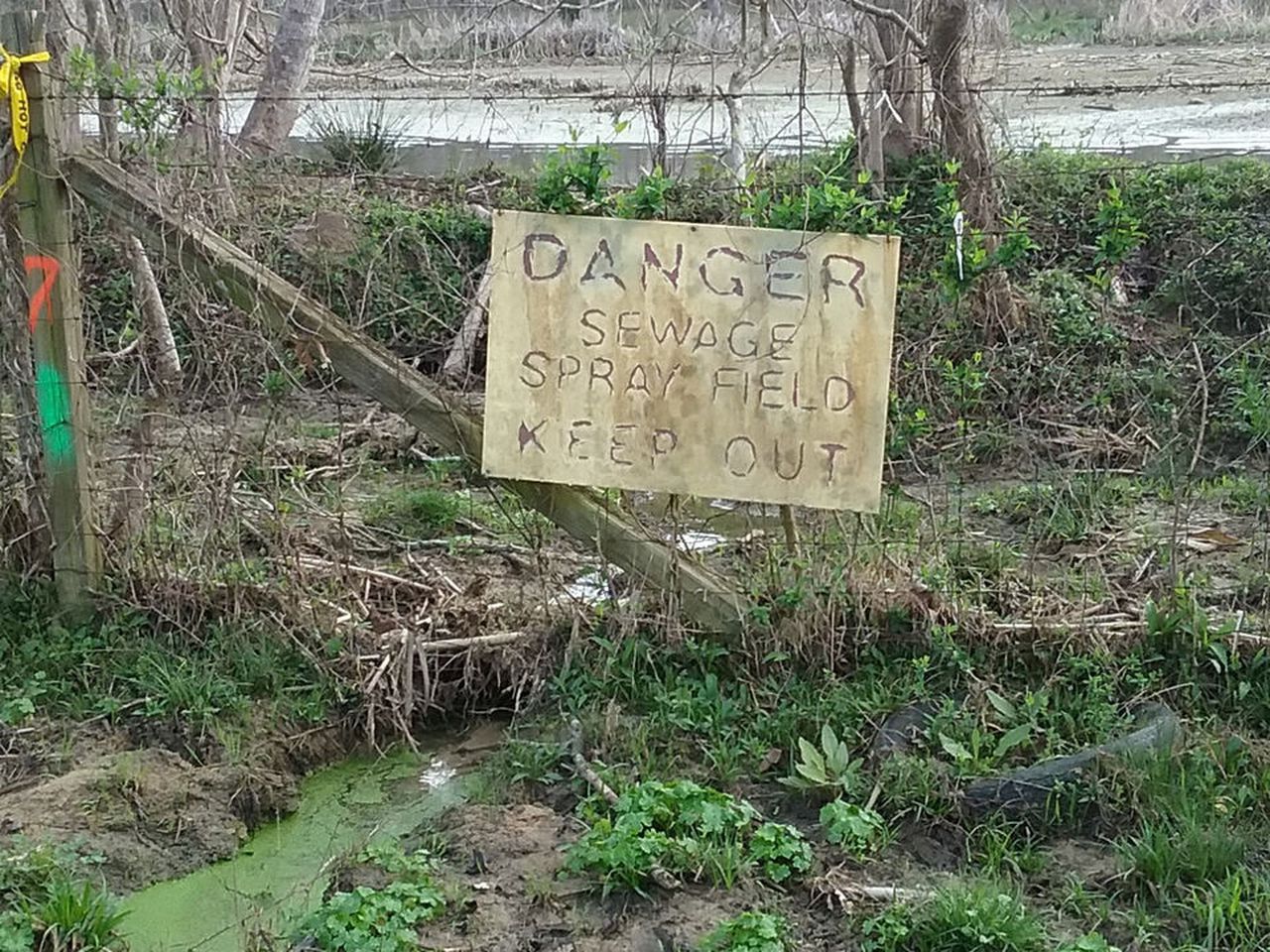Alabama sues Uniontown again over sewage issues
Alabama officials say there has been progress on a $31 million project to fix widespread sewage overflows in the struggling Black Belt city of Uniontown, but in the meantime the sewage, and the lawsuits, keep flowing.
Last week, Alabama officials filed the state’s third lawsuit since 2005 over sewage overflows from the small city in Perry County, which many cite as an example of environmental injustice due to the area’s low income levels and largely Black population. The city has dealt with a malfunctioning municipal sewer system for decades, and has seen an influx of industries seen as undesirable, including one of the state’s largest landfills, a catfish processing plant and large-scale cheesemaker.
The Alabama Department of Environmental Management and Alabama Attorney General’s Office filed the most recent lawsuit alleging violations of the Clean Water Act and the Alabama Water Pollution Control Act against the Waterworks and Sewer Board of the City of Uniontown.
“The State and ADEM have filed this action seeking a declaratory judgment to ensure the continued remediation of the long-standing problems with the Uniontown Wastewater Treatment Facility without relitigating previously addressed issues or allowing current progress to be obstructed,” the lawsuit states.
The state had previously sued Uniontown over discharges from its failing sewage treatment system in 2005 and 2012, gaining a court order to force the city to address near-constant sewer overflows. The city’s old sewer system is crumbling, with aging terra cotta pipes and brick and mortar manhole covers that allow rainwater to flood into the sewer pipes.
The system is designed to allow solid sewage to settle out into a treatment lagoon, while the wastewater is pumped out through a sprayfield to be absorbed back into the ground. However, the system is not functioning as it should. The numerous leaks allow rainwater to flood the treatment lagoon, causing overflows there, and sending too much water to the sprayfield, which is essentially a pond held in place by crumbling earthen dams. The pond overflows constantly into nearby creeks.
Lynn Battle, external affairs chief for the Alabama Department of Environmental Management, said the state’s new lawsuit “ensures that the city’s responsibilities under the original court order are now the responsibility of the Waterworks and Sewer Board of the City of Uniontown.”
But the state’s lawsuit will also pre-empt legal action from environmental groups Black Warrior Riverkeeper and Black Belt Citizens Fighting for Health and Justice, which had filed a formal notice of intent to sue the water board over pollution coming from the city’s malfunctioning treatment system.
The environmental groups say the city is not doing enough to stop ongoing water pollution issues while the long-term fix is being implemented. In their notice of intent to sue, the Riverkeeper group cited numerous overflows that are ongoing and sky-high levels of fecal coliform and E. coli bacteria in local creeks near the treatment system. The Riverkeeper also documented black corrugated pipes that were discharging into creek tributaries surrounding the treatment lagoon and sprayfield.
Eva Dillard, staff attorney for Black Warrior Riverkeeper, said that even though progress is being made on the larger fix, there are steps that can be taken now to lessen the impacts of the sewer overflows on the rivers and the residents.
“Essentially the Uniontown system has to be remediated from top to bottom,” Dillard said. “I would say, [it will take] a very conservative estimate of five to seven years before they actually have everything fixed.
“And so during that time, if there are things that can be done to make the pollution less impactful, we would like to see the board implement those for the community.”
The Clean Water Act allows private citizens or groups like the Riverkeeper to file lawsuits when the state is not prosecuting alleged violations of the Act, but these groups are required to file a formal notice of their intent to sue 60 days in advance. If the state steps in during that 60-day period, then the Riverkeepers cannot pursue their own claims against the city, typically leaving the state to negotiate a settlement to resolve the alleged violations and sometimes cutting the environmental groups out.
Dillard said the state’s lawsuit was filed 59 days after their notice of intent to sue.
The state argues that the board is making progress and that additional legal action could slow that progress.
“In essence, the [Waterworks Board] has picked up the baton of running the sewer system and is finally making headway to solve decades-old problems,” the lawsuit states. “Any delays to the project will likely increase cost and could jeopardize the funding that must be used within a certain period of time.”
The latest attempt to fix the problem, funded mostly by a $23 million grant from the U.S. Department of Agriculture, will pipe Uniontown’s wastewater about 20 miles to Demopolis for treatment at a mechanical plant there, and away from the city’s constantly overflowing sprayfield treatment system, which has not worked correctly for decades.
Many, including Uniontown Mayor Christopher Jones, have argued that the money should be spent to build Uniontown its own treatment plant instead of piping waste to Demopolis. However, the original plan continues to move forward.
